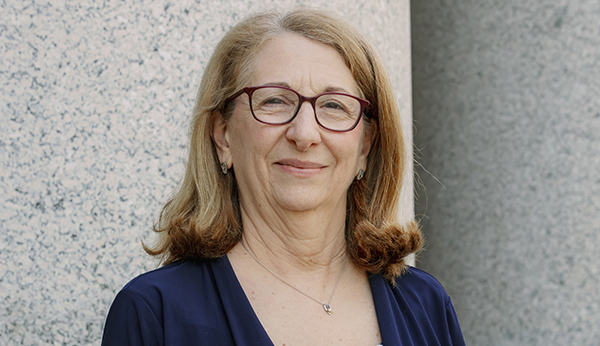
WASHINGTON — A group of 14 states, legal experts, sidewalk pro-life counselors, and pregnancy centers are urging the Supreme Court to take up the case of Debra Vitagliano, a Catholic challenging a law in Westchester County, New York, that prohibits her sidewalk ministry outside abortion clinics.
This summer, Vitagliano, who is represented by Becket, a religious liberty law firm, asked the court to reconsider its decision from 2000 in Hill v. Colorado, which allowed states and local governments to ban counseling, education, or handing out literature within 8 feet of the entrances of those facilities.
In a statement, Vitagliano said she was “thankful for this outpouring of support for my ministry and sidewalk counselors across the country, and I pray that the justices will take my case and vindicate my First Amendment rights.”
She added that her ministry was meant to offer “abortion-vulnerable women a message of hope and compassion, letting them know that they are loved and can keep their babies.”
Vitagliano, an occupational therapist for special-needs children, recently trained to be a sidewalk counselor at abortion clinics but her ministry ended last year when Westchester, where she lives, passed a law called the Reproductive Health Care Facilities Access Act.
That law established a 100-foot zone around abortion clinics — including public sidewalks — preventing anyone from approaching within 8 feet of another person in that zone unless given explicit consent.
Westchester County’s law is similar to a Colorado law upheld by the Supreme Court in Hill v. Colorado, which many have criticized as going against the country’s free speech protections.
The Westchester law, described as a bubble, or buffer-zone, law, imposes misdemeanor penalties of up to $5,000 and a year in jail for those who attempt to counsel women outside abortion clinics.
When Vitagliano filed suit against the county law, her case was dismissed by a New York District Court based on the precedent set by the Hill ruling. Her case was similarly dismissed by the Second Circuit Court of Appeals for the same reason.
Both courts agreed with lawyers for Westchester County that the New York bubble law is valid under established precedent.
In friend-of-the court briefs filed in support of Vitagliano, legal experts including Richard Garnett, a Notre Dame professor of law and director of the Notre Dame Program on Church, State and Society, stressed the widespread disagreement on the Hill decision. “Hill was wrong the day it was decided and has only gotten worse,” Garnett and other law professors said.
A brief filed by the Knights of Columbus and the March for Life Education and Defense Fund similarly criticized the court’s Hill decision and said the First Amendment rights to “engage in peaceful pro-life speech outside of health care facilities have been eroded by Hill for far too long — and only this court can restore those rights.”
Their brief added that the court’s decision in Hill has “prevented pro-life individuals and organizations from effectively advocating for their views in a quintessential public forum for too long” and added that its “convoluted reasoning threatens other forms of unpopular speech as well.”
Fourteen states — Kentucky, Alabama, Arkansas, Idaho, Iowa, Mississippi, Missouri, Montana, Nebraska, South Carolina, Tennessee, Texas, Utah, and West Virginia — also filed a brief in support of the sidewalk counselor, saying the continued reliance on the court’s Hill decision curtails free speech rights.
“Governments should not try to outlaw peaceful conversations on public sidewalks, and they certainly shouldn’t make it harder for women to get complete information,” said Mark Rienzi, president and CEO at Becket.
“As this wave of support shows, it’s time for the court to fix the mistake in Hill and make clear that the law protects people like Debra Vitagliano who want to offer help to women in need.”
The Supreme Court has not decided if it will take this case.
